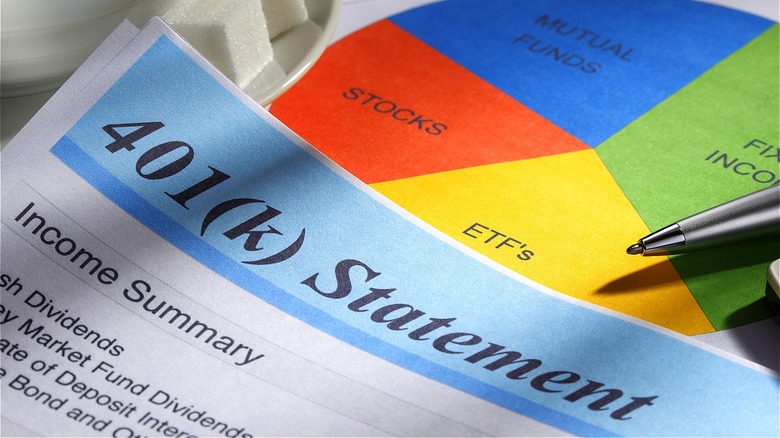The Real Reason Companies Offer 401(k) Matching
When planning for retirement, a 401(k) plan can prove a great tool for building wealth over time. Typically offered by employers (though self-employed individuals are also eligible) 401(k) accounts are funded with pretax earnings that are deducted from an employee's regular paychecks. The 401(k) balance grows through investment and remains untaxed until the account holder reaches retirement age and begins to draw down the balance, called taking distributions.
What's even better is when your employer provides an incentive to contribute to your 401(k) in the form of a matching contribution. For example, if an employee contributes 3% of their annual salary to a 401(k) plan and their employer provides a dollar-for-dollar matching contribution of 3%, that results in a total contribution of 6%. For employees, this is literally free money, though match rates vary by employer and certain IRS restrictions, such as contribution limits, do apply. Needless to say, companies offering a 401(k) match to employees are obviously more desirable to work for from an employee's perspective, but there are hidden benefits for employers as well, such as attracting and retaining top talent.
It's cheaper than offering pension plans
Having employees who feel both valued and financially secure are obvious reasons why some employers offer a 401(k) match perk, but it makes good financial sense for the company as well. In the old days, many companies provided their workers with pension plans in retirement. A pension plan typically consists of a fixed payment made to retired employees each month for life, based on their salary history and tenure with the company. Besides bearing the entire cost of the pension payments, employers also had the administrative task of managing the pension's accounting, investments, and payments.
The Pension Rights Center tells us that in 2022, the average pension benefit to individuals from private companies was approximately $11,040 per year. Compare that to a company offering a fairly generous 3% matching contribution into an employee's 401(k) account. For a $60,000 salary, that contribution match costs the company $1,800 each year. That's much less costly than supporting a pension plan, and companies are also able to deduct the contribution match amounts from their income taxes up to limits set out in the IRS code.
Matching IRA contributions is also a great perk
If you're wondering how your employer's generosity stacks up against some big corporate names, Microsoft contributes 50 cents for every $1 that an employee contributes. Amazon also offers a 50% match, capped at 4% of the employee's salary, while Netflix provides a dollar-for-dollar match up to 4% of earnings each year. In any case, note that all contributions — your contribution, plus your employer's match — cannot exceed the 401(k) contribution limits established by the IRS.
So far, our discussion of matched contributions has focused on 401(k) plans, but some employers will offer an individual retirement account instead. Specifically, Savings Incentive Match Plan for Employees (SIMPLE) IRA plans allow employers to make matched contributions up to a specific limit. SIMPLE IRAs function similarly to 401(k)s with some subtle differences, like contribution limits, but these plans should still be considered a valuable perk and a good path toward funding retirement, to be sure.
To recap, a company offers 401(k) matching as a recruitment and a retention tool. Companies that offer matching will be viewed as a desirable place to work in the eyes of potential hires, while also being seen as one that rewards existing talent. Plus, the cost of making matching contributions to an IRA or a 401(k) plan is tax-deductible and overall, lower than funding and maintaining old-timey pension accounts.


